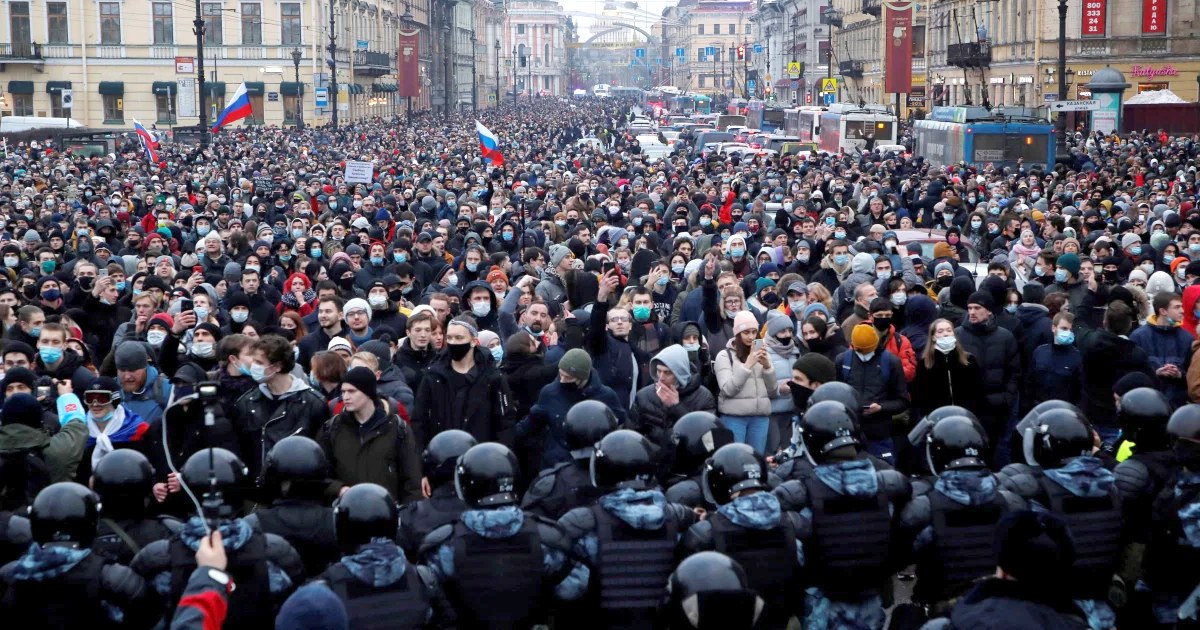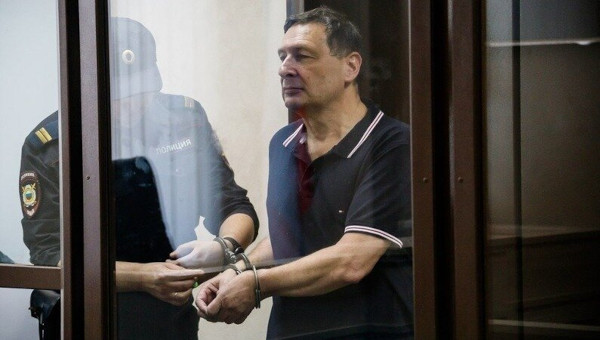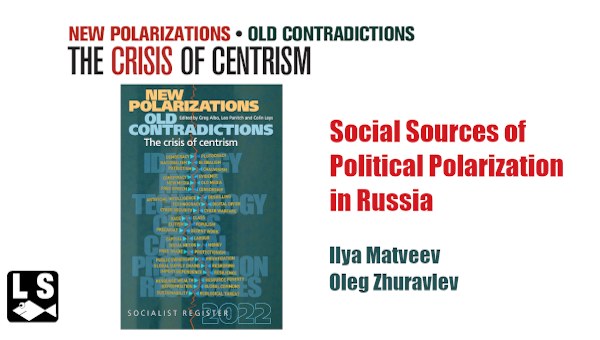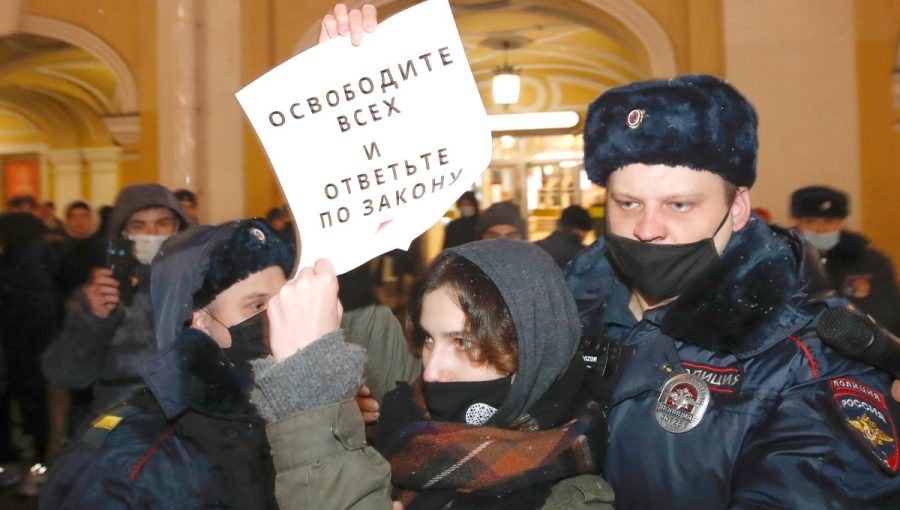Navalny and the Protests: Some Clarification
Who is Alexei Navalny? We now hear nothing but good things said about him in the West, and the enthusiasm should probably be tempered. I personally have never been a fan of Navalny. At the same time, the guts he showed in returning to Russia when he knew he was threatened both physically and legally unmistakably raises him to the level of a modern hero.
Navalny has just been sentenced to two years and 8 months in prison for a spurious reason, having broken the rules of his judicial review since… he was in Germany on authorization from the Kremlin to seek treatment after the attempted assassination of which he had been the victim in Russia… An absurd story, but absurdity is now the favourite style of the Kremlin, making politics an absurdity.

I remember him fighting alongside the inhabitants of Moscow against real estate constructions threatening their environment, alongside the inhabitants of Khimki to save their forest from a highway construction project led by Vinci (the French are everywhere). I also remember him in the nationalist “Russian Marches” (under the slogan “Russia for the Russians”) of the second half of the 2000s and in debates (with me also) on immigration, which he at that time made an objective of struggle (especially against illegal immigration, but also for increased control).
His popularity took off with the 2011–12 mobilizations against fraud in the presidential elections, and especially thanks to his videos denouncing the corruption and illegal enrichment of the highest leaders of the state, which gave rise to demonstrations in 2016–17. But at that time, still, he remained little known to most people. He was mostly seen as one of the many “politicos” who try to build a career by fooling people (according to the classic perception of “dirty politics”).
The Situation has Changed Radically
He is known to the majority, partly thanks to the Kremlin which instead of ignoring as usual the actions of the non-institutional opposition, incessantly makes his name known in the state media, obviously to smear it (“Foreign agent,” “destabilizer,” “provocateur sending children to unauthorized demonstrations”), but also to respond to his accusations.
For the first time, President Vladimir Putin has explained himself publicly (no, it is not his palace, no, he lives humbly like a true patriot), which, given the lack of confidence that Russians in general have in television, only reinforces the certainty that he too is helping himself (generously) from the coffers of the State. Moreover, it exposes him to ridicule, as someone who is precisely very touchy about his reputation as a ruler of integrity concerned for the wellbeing of his people. Suddenly, he has fallen from his pedestal, including with those who always voted for him or believed him at least to guarantee the stability, the state, and the independence of Russia.
Navalny has succeeded in tearing off the veil and:
1. breaking Putin, the symbol of the resurrection of Russia, to make him a politician like any other, corrupt, greedy for profit and despising his people,
2. showing by his own example (by committing his body and his life) that we must stop being afraid.
It is strength of character and this is what commands respect. Beyond the reservations that we may have, and which may be numerous. Navalny’s economic programme, for example, which he never really presents directly, seems clearly neoliberal (competition, competence, privatization, deregulation, fuller integration into the world market). His nationalist sympathies can arouse mistrust, they also testify to the political flair of this man who seeks to express himself as closely as possible to what his fellow citizens feel.
At the time of his frequent trips to the regions, at the end of the 2010s, he regularly raised the question of social inequalities, dismally low wages, the state of decay of infrastructure and public services (alone in the “liberal” opposition in this respect). He also supported trade union initiatives (support from an independent union of doctors) and citizens’ initiatives (support for complaints from residents about the management of their buildings). He therefore mastered populist discourse. And at the same time, he is supported by Western governments and, arguably, also by Russian capital linked to the West.
An Impressive Mobilization
All these reservations do not prevent us from celebrating the impressive mobilization that he has succeeded in inspiring, once again, at the cost of his freedom and at the risk of his life. The current protests mark a turning point. First, they are characterized by a massive participation of the regions, with demonstrations having taken place in very remote places. A riposte to the contemptuous arrogance of the “enlightened” and pro-Western intellectual elite who had nothing but contempt for Russians in demonized regions for being supposedly the docile vassals of Tsar Putin.
This Russia of the regions, as sociological surveys have shown for a long time, is constantly agitated by struggles and citizens’ initiatives – especially for survival, little things that preserve a minimum of well-being and which nevertheless require great courage, and a strong capacity for self-organization. Of course, these struggles in the regions, of the workers too, of the impoverished inhabitants, were not struggles for abstract human rights, nor support for a mythical and monolithic “opposition,” nor for “democracy,” something with which Russia is not very familiar.
The current mobilizations therefore indicate an obvious politicization of social struggles, while many say they are in the streets not to support Navalny and fight against Putin, but so that people can live better, be respected, and that the capture of the country’s wealth by a handful of oligarchs should cease. These aspirations correspond to what I encountered during my surveys in the regions in 2016-2018. I found there, at least in the popular classes, dissatisfaction with and sharp criticism of the existing regime (especially condemnation of the staggering inequalities and a state controlled by the oligarchy of the richest).
Let us not forget that in a country as immense (and rich in natural resources) as Russia, inequality also opposes the regions to the centre which takes the wealth and does not redistribute anything, at least from the point of view of the inhabitants of certain provinces which see themselves as “colonized” by Moscow. Patriotic propaganda from the Kremlin further compounds the discontent by highlighting the so-called “wealth” of Russia, which most can easily compare with their real-life experience.
This discontent and criticism, widely shared and punctuating everyday conversations, remained however underground or sometimes expressed through micro-social struggles. Too strong an awareness of the unequal relationship of forces, too strong a sense of powerlessness against what was (rightly) considered the wall of money and repression. It seems that Navalny has managed to turn the tide and make it appear that, yes, it is possible to resist.
In a nutshell, if we know that we are attacking a wall and that we attack it all the same, it is because the rage is there, and it has accumulated! We can retort that the mobilizations are not massive. But, firstly, protesters are often prevented from regrouping and roam the streets in disorder, making it difficult to count. Secondly, the active support goes well beyond the present: there are the car horns, the nudges of the inhabitants, the millions of views of the video of Putin’s “palace” and the everyday conversations.
A Youth Revolt?
It is certain that young people have been increasingly numerous in the demonstrations in recent years, whereas they were one of the most apolitical groups not so long ago. An effect of the new political style of Navalny and a few others (videos, social networks), of the taste for freedom, but also of the closure of their perspectives: a broken social elevator, better places taken by the offspring of the oligarchs. There are also the students from Moscow and St. Petersburg who come from the regions and can compare the standard of living and the infrastructures here and there and take offence in interviews with such inequality of treatment within the same country.
While there are many young people, this is not a youth movement or a generational conflict. As polls conducted among protesters in Moscow and St. Petersburg by teams coordinated by Alexandra Arkhipova show, all age groups are represented. Elderly people whom the liberal opposition accuse of being lobotomized by Kremlin propaganda have also taken to the streets. They openly start to condemn Putin and his policies, without being held back by fear of once again suffering the chaos of the brutal neoliberal reforms of the Yeltsinian 1990s, and here again, express their anger at the miserable pensions amid such disgusting luxury at the summit of the state.
Patriotic propaganda has had for many the opposite effects of what was expected by the regime: far from strengthening the legitimacy of the system, it has above all contributed to the politicization of people, to the broadening of their viewpoints, to the denunciation of massive poverty (“how can we live so poorly in such a rich country?”), to the consideration of the interests of the country as a whole, to the aspiration to be part of a “people” that had been believed to be dead and buried by an ethos of looking after number one and the humiliation of a ruined and dislocated country.
The reasons for protesting are therefore very diverse and go far beyond Navalny or corruption. Everyone comes out with their own feelings and their own aspirations. They all want change, respect, an end to the theft of wealth. Hopes and refusals that come together without contradictions and tensions for the moment, since the struggle is above all for change. What change? When the question is asked, divisions will emerge, but for now it is a kind of national unity to regain dignity and, in a sense, popular sovereignty. From the words I heard in the demonstrations, I remember the idea of rebelling “for all Russians,” “for the people,” “for Russia,” “because I want to help my country.”
One last detail deserves attention. While Russians are used (in recent years in any case) to being very “wise” on demonstrations, very respectful of rules and conveniences, we observe an unexpected aggressiveness, to oppose arbitrary arrests and stand up to the police. Dignity is also defended against the police. And the crackdown (thousands of arbitrary arrests across the country) is only adding to the rage and resolve.
In short, this is a mobilization of very diverse discontent and aspirations that are expressed for the moment in a surge of solidarity from a people recovering their dignity. Navalny is not the leader but the detonator – not even Navalny the politician (who as a politician can only arouse mistrust), but the real, physical example of Navalny who risked his life to show that we could resist.
Under these conditions, it is not possible to define the political face of the mobilization, denounce or rejoice in the ultra-neoliberalism or pro-Western sentiments of the demonstrators, or denounce or rejoice in the aspiration for a fair distribution of wealth and a struggle against the oligarchy. The rejection of politics is so deep, the disorientation so radical, that none of the political coordinates known in the West make sense in Russia to most people. Neither right nor left, neither conservatism nor progressivism, neither monarchism or anarchism and so on.
The Mobilization is Courageous
This is a fact. The mobilization is united and extends to the whole country and all age groups. It is in the encounters between the demonstrators, the discussions in the street and the police stations, that a new relationship with politics, another politics, can be built.
As for the Kremlin and the current political system, it is suffering the deepest crisis it has known since Putin’s rise to power (which itself had already saved the Yeltsinian system from collapse). The system has in fact exhausted its sources of legitimacy: neither patriotism, nor populism, nor the figure of Putin-the-Saviour allow it to maintain itself any more. The oligarchs and all those who profit from the system therefore have only one option: naked repression.
The situation is therefore very tense, the risks are major, but the system can indeed collapse. So, what would replace it? This is an open question. Being on the left and convinced of the relevance of the social agenda, I hope that all left activists in Russia (they are not very numerous) will be able to get involved in the struggle and reinvent politics, with all the rest of the protesters. •
This article first published on the International Viewpoint website.




